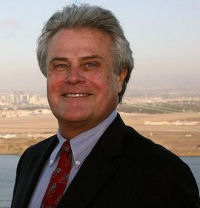
“Your source for Trusts, Wills, Probate, Family Law & more”
By: Stephen C. Ross, Esq.
May 16, 2013 (San Diego County) – Advance planning concerning your medical care decisions is important for both you and your family. It ensures your desires will be met while providing guidance to loved ones making difficult decisions regarding your care. People have varying opinions concerning what procedures to allow, medications to take, whether-or-not to prolong life and organ donation. Having an understanding of the terminology and decisions you may have to make will help ensure your wishes are met by those responsible for making your medical care decisions in the future.
A “health care decision” is a decision made by the patient or patient’s agent, surrogate or conservator concerning the patient’s health care, including: the selection and discharge of health care providers and institutions; directions to provide, withhold or withdraw artificial hydration and nutrition and other forms of health care, including resuscitation; and, approval or disapproval of various tests, surgeries and medications. An Advance Health Care Directive includes an “individual health care instruction” and a “power of attorney for health care” (PAHC). An “individual health care instruction” describes the patient’s ability to make written or oral directions for his or her own health care without necessarily naming an agent. A PAHC is the most effective document by which a person can make arrangements in case of incapacity.
Unless the health care directive specifies otherwise, the agent’s authority becomes effective only on a determination the principal lacks capacity, and the agent’s authority ceases to be effective on a determination the principal has regained capacity. The capacity determination is often made by one or two physicians. A Health Insurance Portability and Accountability Act (HIPAA) release should be included with the health care directive so the agent will have access to the principal’s medical records.
A health care directive signed on or after January 1, 1992, does not have a time limit on its validity unless the principal specifies a limit in the directive. California enforces written health care directives or PAHC meeting the requirements of California law or the law of the state where it was created. Not all states recognize a California PAHC.
A person must have capacity to execute a health care directive. A person having capacity may revoke an agent’s authority by a signed writing or by personally informing the primary health care provider. An agent whose authority has been revoked has a duty to communicate the revocation to any health care institution providing care to the principal.
Selecting the proper agent is an important decision. Certain people are prohibited from serving as a health care agent to avoid conflicts of interest. They include: a supervising health care provider; an employee of a health care facility where the principal is receiving care; and, a community care or residential care facility operator or employee.
The principal may appoint two or more people to act as co-agents. However, appointing co-agents is strongly discouraged due to the risk of conflicts and disagreements resulting in delay or indecision. A better practice is to designate alternate agents thereby providing an alternate agent to take over should the primary agent die, resign or become unable to act.
A well-designed PAHC will typically eliminate the need for the court to establish a conservatorship of the principal. However, it is good practice to nominate a conservator in the PAHC in the event a conservator is required.
A PAHC may be witnessed by two adult witnesses, one of whom cannot be related to the principal by blood, marriage, or adoption, or be entitled to any of the principal’s estate. Alternatively, the PAHC may be notarized.
The PAHC confers certain limited powers on the agent to dispose of remains, order an autopsy, continue to access or release medical records and make anatomical gifts. The principal should consider these powers carefully and include any desired limitation of these powers in the PAHC.
Stephen represents estate planning, trust, will, probate, trust administration, business formation, and stepparent adoption and family law matters. He conducts estate planning and probate seminars throughout San Diego County. For more information or to schedule a seminar contact Stephen at (619) 795-8524, stephen@stephenrosslaw.com or visit www.stephenrosslaw.com.
Disclaimer: Information contained in this article is believed to be accurate. However, you should seek professional legal advice before relying on the information.









Recent comments